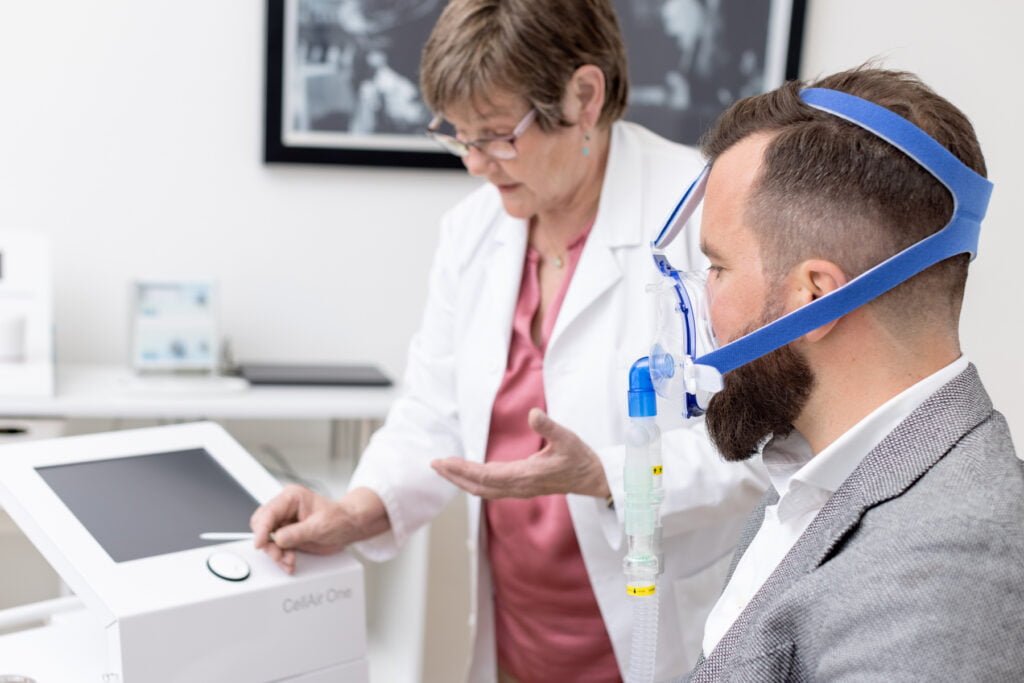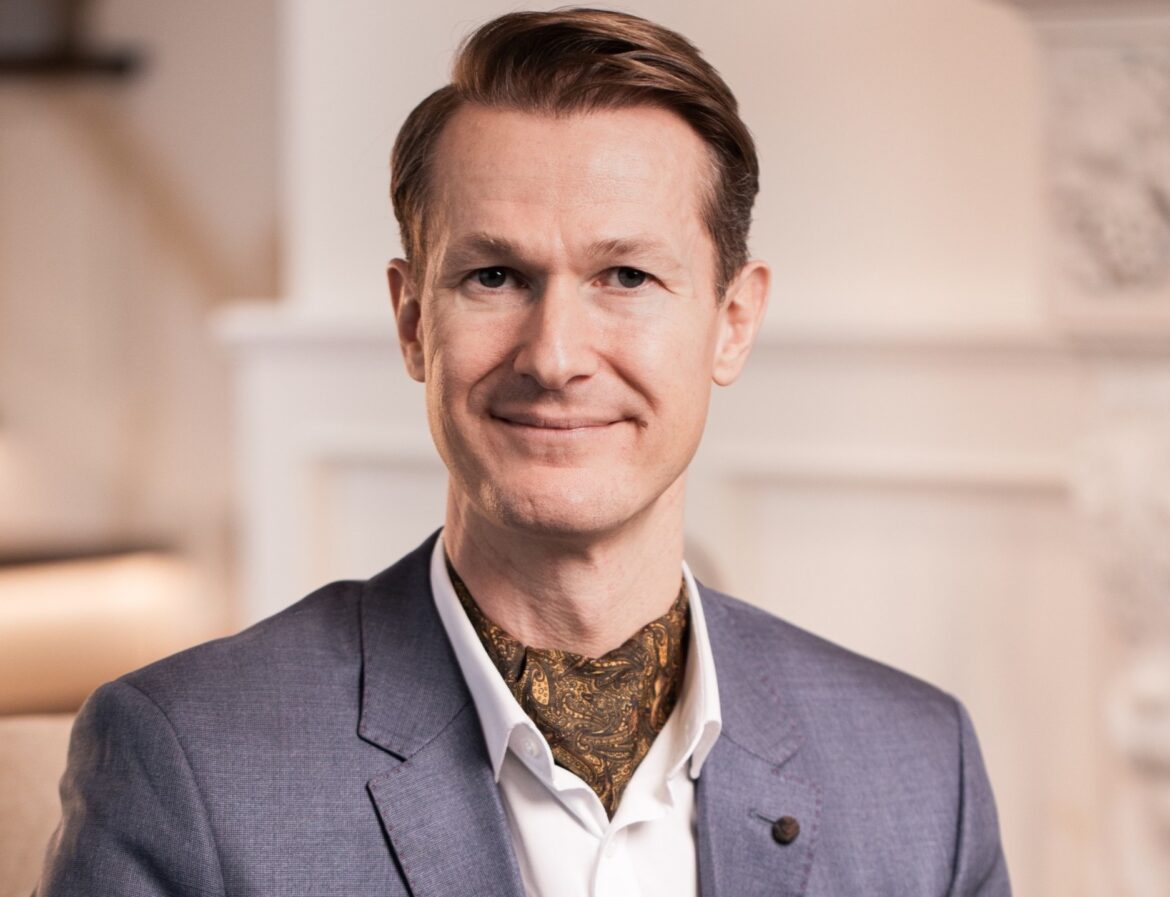Long hours, heavy workloads, difficult decisions and financial woes – for high-flying C-suite executives, it’s not all sunshine and roses.
Indeed, the world is currently in the grip of a mental health crisis, and according to Jan Gerber, the Founder and CEO of Paracelsus Recovery, business big-hitters and the ultra-wealthy are not exempt.
“Pain is real,” said Gerber. “It doesn’t matter what your last name is, it doesn’t matter what your role is in a company or [in] society, or how much money you have to your name. In the end, we are human.”
Gerber, who runs a luxury rehabilitation clinic that caters to the world’s wealthiest, has a background in finance and used to work as a consultant in the investment banking space.
Back then, he would put in 100 hours a week for several weeks on end. “You could do that in your mid-to-late twenties, but even then, it takes a toll,” said Gerber.
The pressures of this high-stress environment, alongside a desire to break out on his own and a touch of “chance,” resulted in Gerber shifting gears.
A gap in the market
This element of “chance” came when a “friend of a friend,” a CEO of a New York Stock Exchange-listed company, was battling an alcohol addiction that required “discreet care.”
“The stock market price could move billions if that came out at the time,” he explained.
Gerber’s parents hail from the healthcare sector—his father is a psychiatrist, and his mother is a clinical nurse specialist—and subsequently joined forces to support this friend. Relocated to the guest room in Gerber’s parents’ home, he was provided with a yoga therapist and an external psychiatrist, with Gerber’s mother handling the clinical coordination.
It was then that Gerber realised that there was a gap in the market: a place where business heads, billionaires, and high-profile names could turn to when they were struggling, somewhere that would help them recover and do so without the glare of the media spotlight and one offering the clinical and “cultural” competency required to understand them.
Indeed, Gerber noted that even a “very experienced psychiatrist or psychotherapist” needs experience with ultra-high net worth and celebrity clientele to understand their triggers, stories, and “specific mental health pitfalls,” alongside the strategies to help them heal.

In addition to these factors, often, the traits that enable performance and success at the “top level” in the C-suite and other leadership positions also predispose individuals to certain mental health conditions and disorders.
Anxiety disorders, bipolar disorder, and narcissistic personality disorder are among some of the mental health issues faced by those in positions of power.
In fact, mental health issues are so prevalent among the business elite that Paracelsus has previously estimated that 50 per cent of those at Davos face some sort of clinically relevant mental health or addiction problem.
That said, it is not just business people and decision-makers that visit the clinic; it treats a broad spectrum of patients, from founders and executives to those born into wealth and well-known names. According to Gerber, each faces a unique set of challenges.
Business leaders battle burnout
For founders, Gerber explained that burnout is a serious issue. As businesses grow and become more complex, over time, founders can struggle to keep pace, hitting an intersection where demand is higher than they can cope with.
This, he said, is especially true as founders age. “Getting older, cognitive abilities do decline,” he said, adding that individuals can struggle to continue to pull the night shift or hop on an international flight at a moment’s notice.
Pressure can build over time, and the breaking point comes when leaders fail to prioritise their wellbeing.
“When you are under stress, when there’s a lot to do, you work more, and you have less time to reflect and check in with yourself,” said Gerber, adding that high-flying entrepreneurs and executives are good at weathering the storm: “We count the injured and the dead later, right now we just have to keep the ship afloat.”
However, often, what tips the scale is a bad financial year, perhaps against the backdrop of a global economic crisis.

Equally, Gerber noted that crisis isn’t always the trigger. “It doesn’t even have to be founded in what we call objective reality.”
While a business may be thriving, Gerber explained that burnout can be triggered by internal pressures.
The more a person has achieved, the more they have to lose, and the more pressure there is to go further, earn more and drive growth.
“It’s almost a shame amongst high fliers if they just keep the level, but they see other peers that are going a bit beyond that, then it feels like a failure.”
Whether caused by low self-esteem or the drive to continue competing, when individuals hit a wall, self-medication is a common coping mechanism, Gerber said.
Addiction is also prevalent among those suffering from what’s dubbed “succession syndrome,” a disorder common among the privileged children of wealthy parents.
More money, more problems?
According to Paracelsus, around 40 per cent of its clients are affected by succession syndrome, which is characterised by low self-esteem, anxiety, depression, narcissistic personality disorder and alcohol and substance abuse.
“Basically, you’re afraid to be found out at any moment that you’re not good enough. You’re not your dad or your mom who built [the] business, and everybody admires; that can be projection, or it can be reality.”
This can be especially prevalent in the GCC, where, according to some estimates, family businesses make up around 90 per cent of private companies and 60 per cent of GDP.

Gerber explained that while the children of successful business people tend to be handed senior positions in family businesses and receive the salary and perks that accompany the top positions, when they enter the office, they’re not taken seriously.
This, he noted, can worsen an individual’s already “fragile self-image,” leading them to question their purpose and worth, resulting in depression and self-medication.
For those who don’t enter the family business, Gerber said many receive the money to start their own businesses. However, he explained that, in this situation, the odds are stacked against them.
“When you found a company, there’s an 80 to 90 per cent chance that you’re not going to succeed – that’s just statistics,” said Gerber, adding: “With a low self-esteem, combined with massive buying power, that almost always creates big problems for mental health.”
Prevention is better than cure
There have been a number of high-profile cases regarding inheritance and succession disputes over the years in the UAE, and recent governance guidelines for family-owned businesses have emerged to tackle this issue and embed more responsible practices.
Indeed, with just one-third of family businesses making it to the second generation and poor mental health prevalent among heirs, prevention is better than cure.
“The more global strategy we have to formulate, particularly when it comes to businesses or wealthy family systems, is one of prevention,” said Gerber.
Gerber explained that businesses should tackle the issue systemically by having a mental health strategy as part of their risk-management strategy.
This, he explained, would help with the more challenging conversations in family businesses. For example, if the head of a family is acting in a “toxic way” or taking on too much unwarranted risk.
“That’s a conversation that’s very difficult to have, and people are afraid to be cut down if they overstep,” said Gerber.

Further, while in recent years, we have seen a movement towards the destigmatisation of mental health, Gerber said that this demographic lags behind the public discourse.
“If you have an issue yourself, you’re afraid it will have a material impact, and you’re also ashamed of it because it’s not just your friends knowing but the wider circle.”
Gerber explained that even if the individual wants to begin the healing process, advisors might urge the family to “keep it under the lid” due to possible material or reputational ramifications.
“I think there’s lots of work to do, and in the end, I think the pragmatists will win.”
According to Gerber, in the next few decades, when fortunes are lost due to mental health issues, pragmatists will examine the numbers and implement mental health frameworks: “That’s when it has the chance to go mainstream.”
“Mental health has to be on your agenda”
This movement towards destigmatisation, while slow, is part of a wider cultural shift, and although for the elite, the conversation is happening more quietly and behind closed doors, employees are demanding change.
Increasingly, mental health, wellbeing, and work-life balance top the employee priority list, and this is beginning to spark change in the workplace. Indeed, regionally, we are seeing the emergence of more flexible working models, four-day weeks, and the introduction of employee counselling services.
“Mental health has to be on your agenda,” said Gerber. “We have to find a balance [in] what is okay to ask of your people,” said Gerber.
Underscoring the importance of prioritising employee mental health, recent research has even found a rise in anxiety and suicidal thoughts among professionals.
“We have to realise what a human is actually capable of and what can be rightfully demanded of them. It’s not just the [number] of hours of work; it’s that constant reachability and the expectation that you answer on a weekend or an evening.”
Gerber said that changing this will require a “cultural shift” in the modern corporate world, which will only be realised by “bold leadership” and policy.
Likewise, Gerber said that business owners and managers must connect the dots between poor employee mental health and financial loss.
Indeed, the business costs of failing to prioritise mental health are astronomical, whether that’s increased absenteeism, lower productivity, or higher turnover rates. Depression and anxiety alone result in an estimated 12 billion working days being lost every year, costing the global economy around US$ 1 trillion.
“Once that sinks in, I think then we can see an accelerating change.”
By Madaline Dunn, Lead Journalist, ESG Mena.
*Photos Courtesy of Paracelsus Recovery




